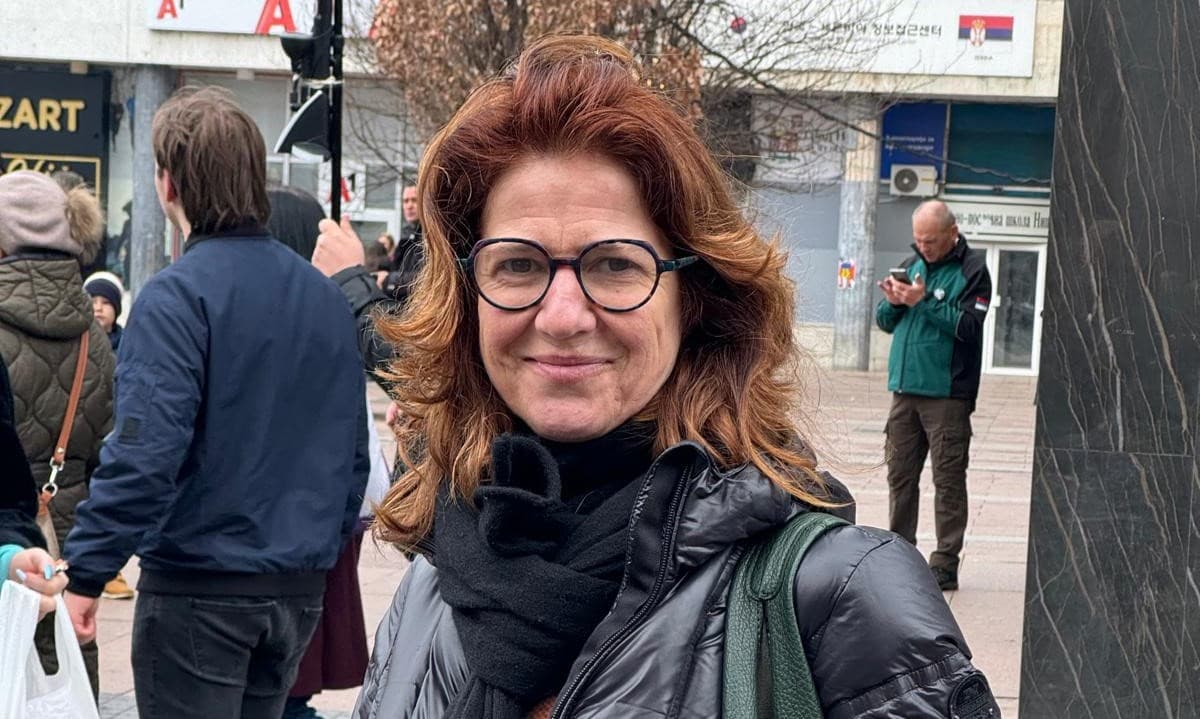Journalists in Kosovo continue to face pressure and attacks – distrust in institutions, insecurity, and a lack of systemic protection.
According to the 2024 World Press Freedom Index by Reporters Without Borders, Kosovo has fallen by as much as 19 places to the 75th position, placing it in the third group of countries in terms of media freedom. Key threats include politicized regulation, SLAPP lawsuits, limited access to information, and an increase in physical attacks on journalists.

In this context, within the framework of the project “System for the Prevention of Violence and Protection of Journalists”, implemented by the Association of Independent Electronic Media (ANEM), Center for the Development of Local Media (CRLM), and Insajder TV, the Report on Media Reporting in Serbian Language in Kosovo has been presented.
The report, based on interviews with editors and journalists from Radio Goraždevac, Radio Kontakt Plus, Radio Mitrovica Sever, Radio Kim, and the portal KoSSev, documents numerous instances of verbal and physical violence, political pressure, lack of institutional support, and economic insecurity.
“Information must be not only available but also understandable – which is a particular challenge in an ethnically divided environment like Kosovo,” the authors of the report emphasize.
According to data from the Association of Journalists of Serbia in Kosovo, 22 cases of security threats were registered in 2024, while the Association of Journalists of Kosovo recorded as many as 42 incidents. Death threats, verbal attacks, obstruction of work, as well as police raids and cyber attacks are part of the daily reality for local newsrooms.
The long-term targeting of one media outlet is particularly illustrative. In 2015, shots were fired at the newsroom, and later the director's car was set on fire. During 2022, threatening messages were left on the official car and the doors of the newsroom. This was followed by physical threats, discrediting campaigns, and cyber attacks.
“It seems to me that they shot at night because we are a female newsroom – as if they thought we would stop working. That did not succeed, so they burned the car. The threats then extended to our families,” the journalist states.
According to the interviewees, security institutions do not provide adequate protection. One media outlet, after suspecting that the police covered up traces of the attack, submitted a written complaint. Doubts about the police's work exist regardless of ethnic composition – “when Serbs were in it, we had the same experiences,” says the editor.
“We no longer report anything to the Kosovo police. They would jump at the chance to accuse any Serb. We are more afraid of the consequences than we believe in protection,” one of the editors notes.
The Association of Journalists of Serbia in Kosovo recorded four cases of inappropriate behavior by the police towards journalists, but in all cases, the victims did not want to react publicly – out of fear of further retaliation.
Although physical security is a priority, most media do not have a strategy for the protection of journalists.
“We have helmets and vests from a USAID program, but we rarely use them. We go out unprepared, just with an ID card. We are aware that this is irresponsible, but we have no other choice,” says the editor of one newsroom in northern Kosovo.
“Imagine a female journalist putting on a bulletproof vest when she hears that the Kosovo police have entered the municipality. The vest weighs three kilograms. This is the reality in which we work,” she adds.
The report also warns of serious financial insecurity – almost all media operate solely due to project funding, without support from stable institutional sources. The withdrawal of USAID funds has further threatened their survival, and the lack of staff and departure of experienced journalists seriously jeopardizes professional journalism in Kosovo.
The entire report on the state of media reporting in Serbian language in Kosovo can be viewed here.
The project “System for the Prevention of Violence and Protection of Journalists” is being implemented with the support of the European Union, Norway, and the Balkan Democracy Fund – a project of the German Marshall Fund of the United States.
Veran Matić, President of the ANEM Managing Board and member of the Permanent Working Group for the Safety of Journalists
Related Articles

ANEM ALARM: The dismissal of the correspondent for the French newspaper Le Figaro, Milica Čubrilo Filipović, may represent a dangerous practice.

ANEM ALARM: Unacceptable attempt to persecute Nemanja Šarović for comments made under a post on Instagram.
.png&w=3840&q=75)


%20%C4%86ao%20Nevena%20VERAN%20MATI%C4%86%20Vlast%20%C5%BEeli%20da%20istrebi%20novinare%20-%20YouTube.png&w=3840&q=75)









